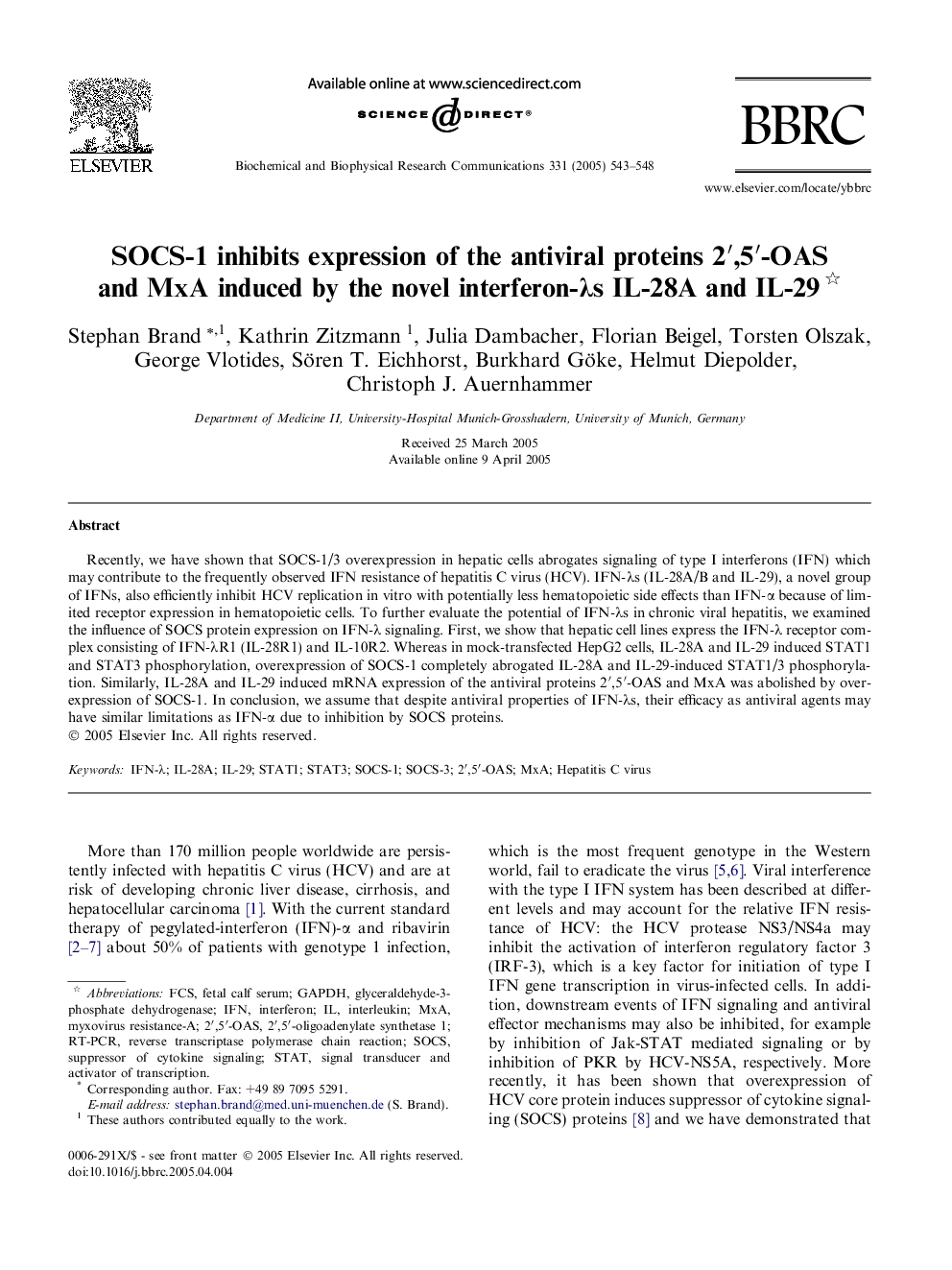| Article ID | Journal | Published Year | Pages | File Type |
|---|---|---|---|---|
| 10769980 | Biochemical and Biophysical Research Communications | 2005 | 6 Pages |
Abstract
Recently, we have shown that SOCS-1/3 overexpression in hepatic cells abrogates signaling of type I interferons (IFN) which may contribute to the frequently observed IFN resistance of hepatitis C virus (HCV). IFN-λs (IL-28A/B and IL-29), a novel group of IFNs, also efficiently inhibit HCV replication in vitro with potentially less hematopoietic side effects than IFN-α because of limited receptor expression in hematopoietic cells. To further evaluate the potential of IFN-λs in chronic viral hepatitis, we examined the influence of SOCS protein expression on IFN-λ signaling. First, we show that hepatic cell lines express the IFN-λ receptor complex consisting of IFN-λR1 (IL-28R1) and IL-10R2. Whereas in mock-transfected HepG2 cells, IL-28A and IL-29 induced STAT1 and STAT3 phosphorylation, overexpression of SOCS-1 completely abrogated IL-28A and IL-29-induced STAT1/3 phosphorylation. Similarly, IL-28A and IL-29 induced mRNA expression of the antiviral proteins 2â²,5â²-OAS and MxA was abolished by overexpression of SOCS-1. In conclusion, we assume that despite antiviral properties of IFN-λs, their efficacy as antiviral agents may have similar limitations as IFN-α due to inhibition by SOCS proteins.
Related Topics
Life Sciences
Biochemistry, Genetics and Molecular Biology
Biochemistry
Authors
Stephan Brand, Kathrin Zitzmann, Julia Dambacher, Florian Beigel, Torsten Olszak, George Vlotides, Sören T. Eichhorst, Burkhard Göke, Helmut Diepolder, Christoph J. Auernhammer,
